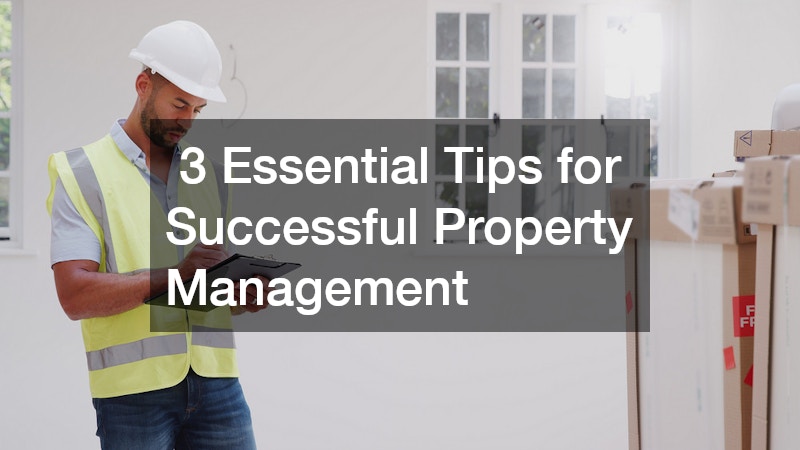Effective property management is the cornerstone of a well-functioning real estate investment. Whether you’re overseeing residential homes, commercial buildings or mixed-use developments, the responsibilities that come with managing a property can quickly become complex.
From handling tenant relations to maintaining the physical structure and navigating legal obligations, property managers must wear many hats. Staying proactive and strategic in your approach ensures long-term success. Below are three essential tips that help streamline operations, foster tenant satisfaction and protect your investment.
1. Prioritise Clear Communication
Strong communication is the foundation of any successful relationship, including those between property managers and tenants. Tenants rely on prompt, clear updates regarding rent, maintenance schedules and policy changes. When communication is poor or inconsistent, misunderstandings arise, potentially leading to disputes or tenant dissatisfaction.
Developing a standard communication strategy helps set expectations early. This may include welcome letters, regular email newsletters or scheduled updates through tenant portals. Ensuring tenants have access to a direct line of contact, such as a dedicated phone number or online platform, also reduces delays and confusion.
Listening is just as vital as speaking. Property managers should invite feedback and be open to tenant concerns, taking steps to resolve issues quickly and fairly. This shows tenants they are valued and heard, which in turn fosters loyalty and a sense of community within the property. Clear communication is also important when dealing with suppliers, maintenance contractors and legal advisors, making sure all parties understand their responsibilities and timelines.
2. Stay Ahead with Preventative Maintenance
Waiting until something breaks before fixing it is not a sound property management strategy. Preventive maintenance is critical for preserving the value of your property and minimising costly emergency repairs. A proactive maintenance schedule extends the life of building systems, ensures compliance with safety regulations and improves the tenant experience.
Create a detailed maintenance calendar that covers everything from HVAC servicing and plumbing inspections to gutter cleaning and pest control. Scheduling regular check-ups allows issues to be identified and resolved before they escalate into major problems. Keeping thorough records of all maintenance activities also helps demonstrate due diligence, which is important in the event of legal disputes or insurance claims.
Tenants often view well-maintained properties as a reflection of professionalism and care. When common areas are clean, lighting is functional and appliances work as expected, tenants are more likely to renew leases and recommend the property to others. Investing in preventative care also helps avoid vacancies caused by dissatisfaction or safety issues.
3. Understand Legal Obligations and Compliance
Navigating the legal landscape is one of the more complex aspects of property management. Landlords and managers must understand tenancy laws, building codes and fair trading regulations. Non-compliance can lead to significant penalties, damage to reputation and even legal action from tenants or local authorities. In some cases, failing to meet legal obligations can result in rental income losses or forced property upgrades that disrupt business operations. Therefore, having a comprehensive understanding of the legal environment is essential not only for protecting assets but also for sustaining long-term profitability.
Familiarise yourself with the relevant legislation in your state or territory. This includes understanding rental increases, bond lodgements, eviction procedures and tenant rights. It is also important to be aware of timeframes and documentation requirements associated with notices, disputes and property access. Keeping up to date with changes in the law is essential, especially as housing policies evolve or new environmental regulations come into effect. Legislative updates can have immediate implications, such as capping rent increases or introducing new energy efficiency standards.
Document all policies and procedures to ensure consistency and accountability. This includes rental agreements, entry notices, maintenance logs and complaint resolutions. A clear paper trail not only helps streamline operations but also serves as evidence if a dispute escalates. Digital systems can help manage documentation efficiently and reduce human error, allowing for quick retrieval of important records during inspections or audits.
Successful property management requires more than collecting rent and fixing leaks. It demands a holistic approach that balances communication, maintenance and legal awareness. By focusing on clear interactions with tenants, proactive upkeep and a firm grasp of compliance obligations, property owners can ensure their investments perform reliably over the long term. With these three essential tips, managing a property becomes a more structured, efficient and rewarding process.
.
